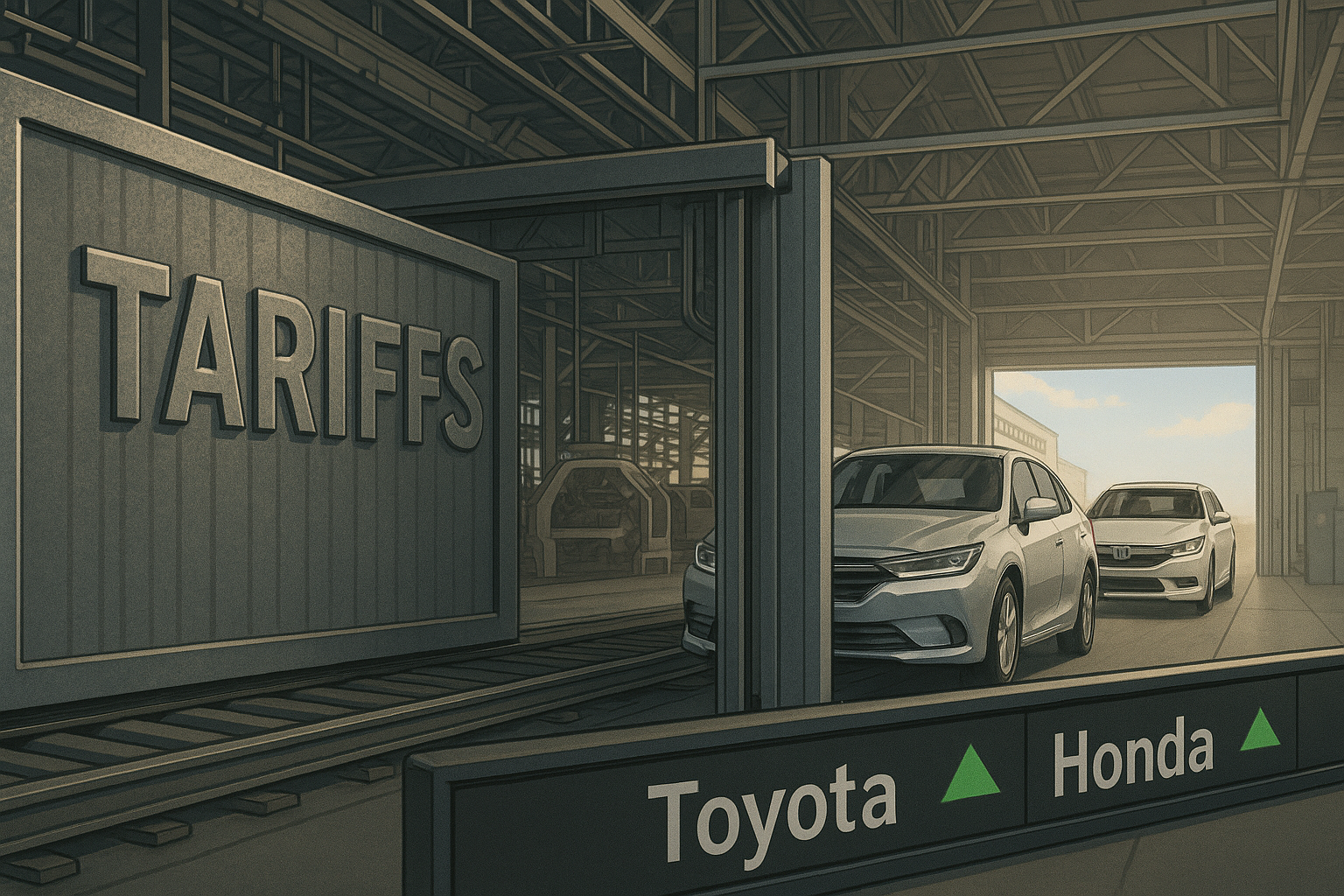The markets this morning are doing what I can only describe as the "thank God he stopped" rally. After what feels like an eternity of Trump shouting "TARIFFS! TARIFFS! TARIFFS!" at anything remotely automotive, we've suddenly got a trade deal with Japan, and Toyota and Honda stocks are performing like they've discovered perpetual motion.
Let me be crystal clear about what's happening. This isn't a victory—not really. It's more like taking credit for how wonderfully quiet your apartment is after you finally stop practicing the drums at midnight.
The carnage in the auto sector has been brutal during this tariff tantrum. Have you seen Stellantis lately? That stock has fallen so far they're practically checking for fossils. Renault looks like it needs Louis XIV to personally intervene with an emergency treasury loan. And poor Porsche... that stock chart resembles the kind of ski slope where they make you sign extra liability waivers.
GM dropped a staggering 8% yesterday alone. Eight percent! That's the kind of single-day plunge usually reserved for companies that just admitted their accounting department has been using a Magic 8-Ball since 2003.
What's particularly fascinating (and by fascinating, I mean deeply ironic) is watching the law of unintended consequences play out in real time. While Trump was busy trying to "protect" American automakers—an increasingly abstract concept in our globalized world—he managed to create perfect market conditions for Chinese EV makers like BYD, Xiaomi, and Li Auto to absolutely thrive. Their stocks keep climbing like they're trying to establish base camp on Everest.
I've covered trade policy for years, and I often think about what I call the "Piñata Theory of Economics." Politicians love to take big swings at foreign trade, convinced that economic candy will magically fall out for domestic industries. What usually happens instead? They break complicated systems in unexpected ways, creating messes that economists will be studying for decades.
The reality of modern auto manufacturing is mind-bogglingly complex. Supply chains that make the London Underground map look straightforward. Parts crossing borders more times than a touring circus.
Slapping tariffs on these delicate ecosystems doesn't "bring jobs back"—it's like throwing sand in your computer's cooling fan and then wondering why everything's overheating.
(I should note that I spoke with three auto industry executives last week who all said variations of the same thing: "We're basically redesigning our entire supply chain every six months now.")
Today's market reaction makes perfect sense through the uncertainty lens. Markets don't just price in good or bad policy; they price in predictability. Trump's erratic approach to trade created enormous uncertainty, which functions as a stealth tax on investment. When that uncertainty decreases—even by simply stopping the chaos—markets naturally respond positively.
The ultimate irony? If Trump had done absolutely nothing—literally just stayed at Mar-a-Lago perfecting his golf swing and posting on social media—both the economy and auto sector would likely be in substantially better shape.
Sometimes the best policy is no policy at all. Or as my first editor used to say: when you're in a hole, the first thing to do is stop digging.
Look, claiming credit for fixing a problem you personally created is Politics 101, but this example deserves some kind of special recognition. It's like slashing your neighbor's tires, selling them new ones at a markup, and then expecting a thank-you card.
Are we seeing a genuine policy pivot or just a momentary breather in the tariff tirades? Markets are desperately hoping for the former while bracing for the latter. Either way, one thing remains abundantly clear: breaking systems is not a strategy... even if partially reassembling them afterward gives you something to boast about on your social media platform of choice.
